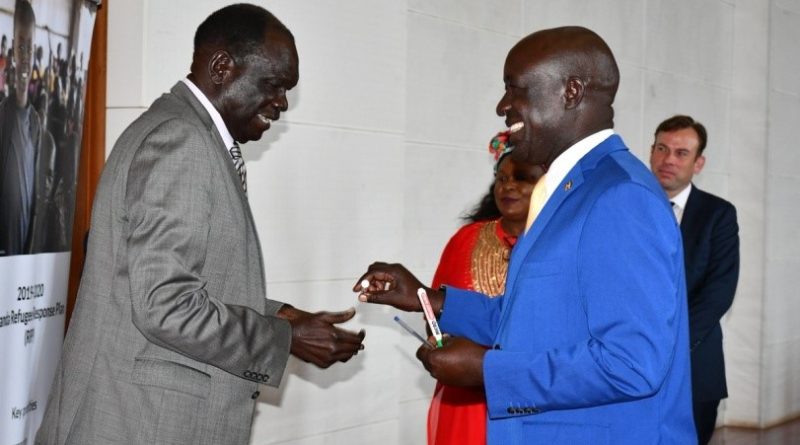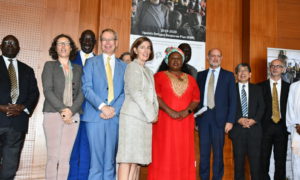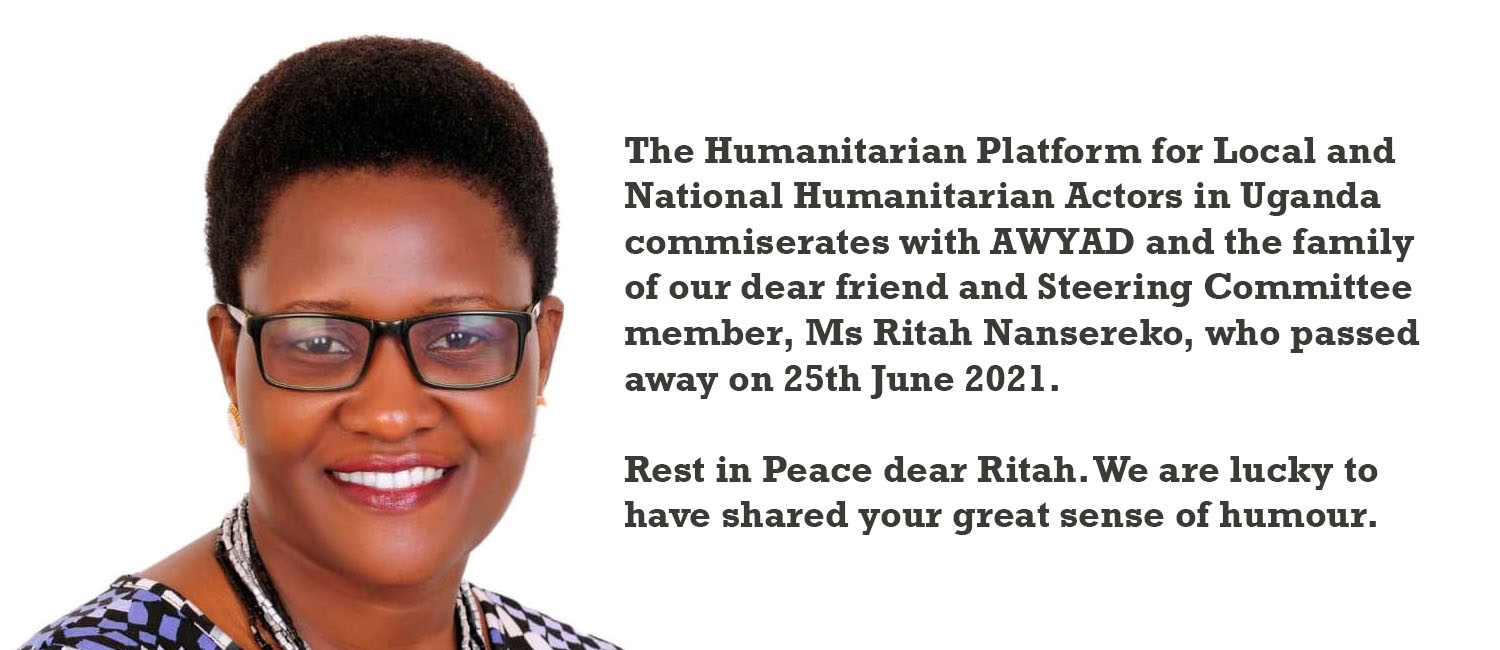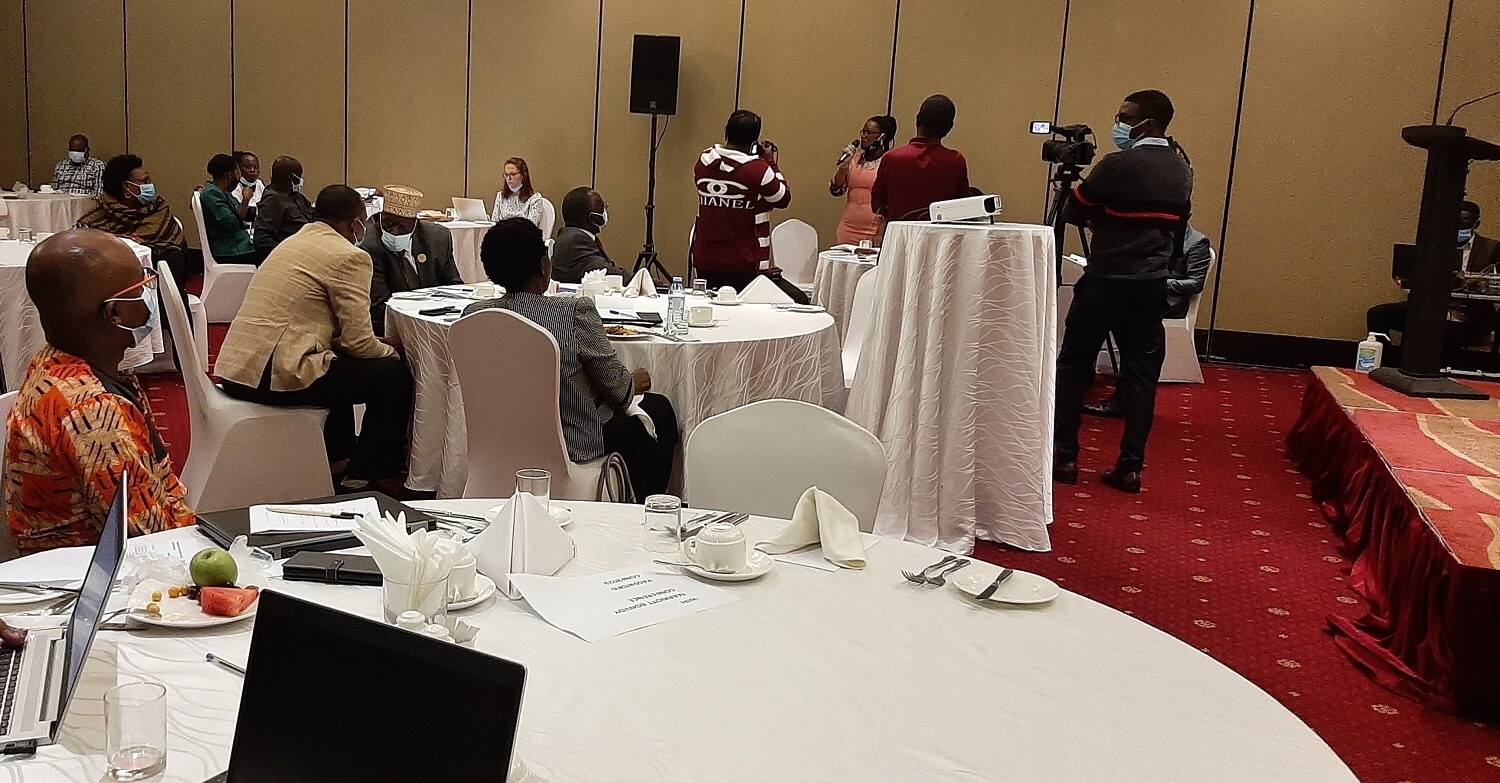
Uganda launches the Refugee Response Plan 2019/2020
“Every NGO implementing humanitarian work in the settlements must factor environmental protection in your interventions”,
Hon Musa Ecweru delivering a presidential directive
On 28th May 2019, over 200 humanitarian actors including government officials, development partners, UN agencies, various Diplomats, non-government organization, refugees gathered at the Office of the Prime Minister Conference Hall to witness the first ever formal launch of the Refugee Response Plan 2019/20 under the auspices of the United Nations High Commissioner for Refugees (UNHCR) together with OPM.
“I want to thank the commendable efforts by donors in supporting the Humanitarian Development nexus in Uganda and issue a call to all Member States of the United Nations, to the leaders of Industry and other Private Sector leaders to invest in both the Comprehensive Refugee Response as well as the local development plans. It is unacceptable that the CRRF in Uganda is still severely underfunded” Ms. Rosa Malango UN Resident Coordinator
The Refugee Response Plan 2019/20 comes at a time when Uganda is constrained by the refugee influx with limited resources to handle the situation. In 2018, only 57% of the RRP budget was funded, leaving most of the needs unmet. The contributions in 2019 have been particularly slow in coming, with less than 20% of the needed funds received. “Humanitarian funding needs to increase and must be sustained, as long as refugees continue to flee to Uganda and require special protection” Joel Boutroué, UNHCR Representative in Uganda.

The launch of the RRP as a coordination and fundraising tool attracted a reflection on how resources meant for humanitarian aid have been mishandled by different actors; as such various development partners emphasized putting accountability and transparency systems in place to be able to regain the trust.
“The U.S. approach is two-fold. On one hand, we will continue to demand transparency and accountability from the Government of Uganda and institutions receiving funds on the part of United States taxpayers. At the same time, it is our duty to find ways to continue financing life-saving, emergency assistance for refugees. Our demand for accountability is unwavering” Deputy Chief of Mission Colette Marcellin, US Embassy
During the launch, Hon. Musa Ecweru reiterated on the relevance of all humanitarian actors placing more emphasis on the misuse of funds through administrative costs most especially by expatriates who are extra ordinarily facilitated due to the nature of their jobs. He added that as the solution to that, the government is headed for a process of reviewing all expatriates’ profession documents to ensure that those who don’t qualify are repatriated and replaced with cost effective local labour.
“ I am yet to commission a process of reviewing all expatriates’ CVs to ensure that some of the jobs in these international organizations are open for Ugandans who are competent; rather than having expatriates doing ordinary jobs” Hon Musa Ecweru.
He further passed the presidential directive to all humanitarian actors operating in settlements to mainstream the component of environment protection in their interventions due to the overwhelmingly absurd environmental degradation in and around the settlements; and hosting communities.
The Minister for Relief, Disaster Preparedness and Refugee Hon. Eng. Hilary Onek further added that refugee problems are international problems and not Uganda’s problems hence calling upon all actors and development partners to be mindful of that; and donate as much as they can. “We have some donors who continue putting more resources towards the humanitarian response and little towards resilience and activities urgently needed to restore the environment and promote self-reliance when we know that the average time of displacement goes beyond years” Ms. Rosa Malango UN Resident Coordinator
In a nutshell, the launch of the Refugee Response Plan 2019/20 revolves around resource mobilization/fundraising as one of the constraints faced by the government of Uganda that is hosting over 1.3 million refugees amidst its own economic mishaps. It also focused on raising awareness on the joint plan priorities and emphasizing coordination as a tool that would bring an end to duplication of work and minimize resource wastage.



